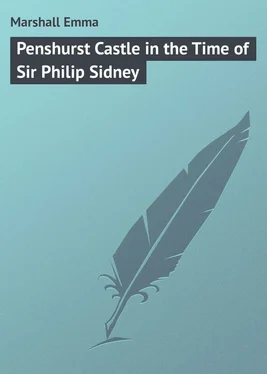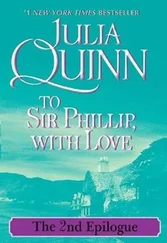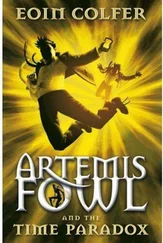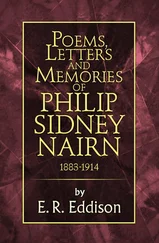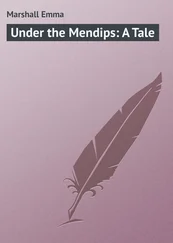Emma Marshall - Penshurst Castle in the Time of Sir Philip Sidney
Здесь есть возможность читать онлайн «Emma Marshall - Penshurst Castle in the Time of Sir Philip Sidney» — ознакомительный отрывок электронной книги совершенно бесплатно, а после прочтения отрывка купить полную версию. В некоторых случаях можно слушать аудио, скачать через торрент в формате fb2 и присутствует краткое содержание. Жанр: foreign_prose, на английском языке. Описание произведения, (предисловие) а так же отзывы посетителей доступны на портале библиотеки ЛибКат.
- Название:Penshurst Castle in the Time of Sir Philip Sidney
- Автор:
- Жанр:
- Год:неизвестен
- ISBN:нет данных
- Рейтинг книги:4 / 5. Голосов: 1
-
Избранное:Добавить в избранное
- Отзывы:
-
Ваша оценка:
- 80
- 1
- 2
- 3
- 4
- 5
Penshurst Castle in the Time of Sir Philip Sidney: краткое содержание, описание и аннотация
Предлагаем к чтению аннотацию, описание, краткое содержание или предисловие (зависит от того, что написал сам автор книги «Penshurst Castle in the Time of Sir Philip Sidney»). Если вы не нашли необходимую информацию о книге — напишите в комментариях, мы постараемся отыскать её.
Penshurst Castle in the Time of Sir Philip Sidney — читать онлайн ознакомительный отрывок
Ниже представлен текст книги, разбитый по страницам. Система сохранения места последней прочитанной страницы, позволяет с удобством читать онлайн бесплатно книгу «Penshurst Castle in the Time of Sir Philip Sidney», без необходимости каждый раз заново искать на чём Вы остановились. Поставьте закладку, и сможете в любой момент перейти на страницу, на которой закончили чтение.
Интервал:
Закладка:
As Philip Sidney paced under the shadow of the beeches, the deep bronze of fallen leaves at his feet glowing here and there into living gold, as the low rays of the eastern sun shone through the branches, thinly veiled, as yet, with tender green, to any casual observer, he did not wear the appearance of a man whose heart knew any bitterness or was weighted with any burden.
His light figure, with its easy swing as he walked, the perfect symmetry of every limb, the pose of his well-shaped head, from which he had removed the small cap with its short plume, raising his face that the fresh air might fan it, were all in harmony with the pride and glory of his young manhood. Suddenly his eyes shone with a smile of welcome, as a lady came from under the great chestnuts, which were already spreading their fan-like leaves from every branch, and exclaimed, —
'Ah! sister mine, I little thought I should find you before me breathing the soft pure air. It has brought the colour to your cheeks which I love to see.'
'Methinks those who lie a-bed late lose the best of the day, Philip, and how surpassingly lovely Penshurst is.'
'Wilton does not make it less dear, then, Mary.'
'Nay, both are beautiful, and,' she added, 'both are home now; but tender thoughts ever cling to the place where childhood has been passed. And how fares it with you, dear brother?' the Countess of Pembroke said, as she put her hand within Philip's arm.
'But ill, Mary. I strive, God knoweth, to conquer, but I cannot, I cannot.'
'Nay, Philip, you shall not say so. You must conquer.'
'If I could free myself from the chain – if I could – but it maddens me, Mary, to think she loved me, and that I was so blind, so blind. She is the wife of a man she loathes, and I – I am to blame. I, who would have died for her.'
'Live for her, Philip. Live to show her all that is noble and pure in your life, and so do her good and not evil. Yes, dear brother, by nurturing this love you do her a worse evil than you know of. Sure, you would not bring her to a new misery, a worse misery.'
'No, no. I would not, yet I would. But the sting lies here; hearken, Mary, to this sonnet, lately penned: —
'I might – unhappy word! O me! I might,
And then would not, or could not, see my bliss
Till now, wrapped in a most infernal night,
I find how heavenly day – wretch! I did miss.
Heart, rend thyself, thou dost thyself but right.
No lovely Paris made thy Helen his;
No force, no fraud, robbed thee of thy delight;
Nor Fortune of thy fortune author is.
But to myself, myself did give the blow,
While too much wit, forsooth, so troubled me,
That I respects, for both our sakes, must show.
And yet could not by rising morn foresee
How fair a day was near – O punished eyes!
That I had been more foolish, or more wise!'
'Dear brother,' the Countess of Pembroke said, – 'these wild laments are not worthy of you. You shall not make any man moan. You will conquer at last, and come out of the fight a nobler man. The very beauty around us seems to bid us rejoice to-day. Come, let us speak of happier themes. You will like to see my little Will, and carry back good news of him to the Queen, whose godson he is. Tell her she hath a brave knight in store in our little Will. You scarce ever saw such tricks as he has, and is not yet one year old.'
Philip Sidney threw off his melancholy mood at his sister's bidding, and, looking down at her, kissed her pure, fair forehead.
'Pembroke has reason to rejoice in possessing your love, Mary, and I doubt not the boy is worthy of you, though he does not, or did not, when I saw him, resemble you.'
'No, he is far handsomer; he has dark eyes and lashes; they lay curled upon his fair cheeks, making the only shadow there. Will has not the amber-coloured hair of us Sidneys.'
As this brother and sister stood together in the morning light under the spreading boughs of the trees, they bore a striking similarity to each other.
Theirs was not the mere beauty of form and feature, though that was in both remarkable.
Intellectual power was seen in the wide, straight brow, and the light of that inner fire we call genius shone in the eyes. It has been said by contemporary records that Philip Sidney's beauty was too feminine in its character; but, if in colouring of hair and complexion and delicate outline of feature, this might be true; there was wonderful strength of purpose in the mouth and upward curve of the chin which indicated resolution and courage, and determination to conquer difficulties.
His sister's words were to come true, 'You will conquer at last, and come out of the fight a nobler man.'
'We must turn homewards now. How long do you tarry here, Philip?'
'But two or three days. Shall we not journey to London in company with Mary. This tournament needs much preparation; I did but snatch a few days to speak on our father's affairs and to breathe freely for a short space, and then I must return.'
Philip Sidney sighed.
'Nay, Philip, what hardship is there in being the favourite of the Queen, save for the jealousy it may breed. Our good Uncle Leicester tells marvellous tales of the manner in which the fair ladies of the Court are ever ready to smile on you, to say nought of the Queen's own delight to have you near her. She seems to have forgotten your former protest against the Duke of Anjou, and to believe in your approval now.'
'It is scarce approval, Mary, but the Queen must do as she lists. She is of an age to discern what is best for herself and her realm.'
'She is, indeed, of an age to do so,' Mary said, with a silvery laugh. 'But queens never grow old, they leave the process to humbler folk, Philip.'
They had reached the house now, and passed under the gateway into the quadrangle, just as the big bell was making a great clamour with its iron, merciless tongue.
'Breakfast is served,' the Countess said, 'and our good mother will already be on the dais awaiting us. Would that our father were here with her. He will be present at the tournament, and I will do my utmost to persuade him to take a month of summer here at Penshurst, and dismiss all care for the time.'
Lady Mary welcomed her son and daughter with a glad smile. She had also been astir early, looking into the affairs of her household, in the home where the unbroken family so seldom met now. Lady Mary's life had been a chequered one, and she had suffered much as a wife, from the unfair treatment her brave, noble husband, Sir Henry Sidney, had received at the Queen's hand.
He was poor in purse and wounded in heart for his service in Ireland, from which he returned at last, losing everything but honour. He was also Lord President of Wales, and received small thanks for all he did in the interests of the Principality, and less gratitude. When breakfast was concluded, Lady Mary Sidney summoned Philip to a conference with her in the small ante-room, which was reached by a stone staircase at the upper end of the large hall.
'You came hither, my son, as your good father's officer. How do you feel towards this scheme? If my husband, your father, be sent for the fourth time to Ireland, will you accompany him, and serve him with the wisdom you ever show, Philip? It is time your father's services should gain some reward. Speak, Philip; do not hang back, but let me hear your mind.'
'Ah, sweet mother,' Philip said, seating himself on a settle at his mother's side, and taking her hand in his, 'do not think I slight my good father, or disparage all his great service for Ireland, if I say I cannot advise him to move in this matter. I was amazed when Molineux came charged with this mission to Court, and I told him I disapproved the appeal being made. For myself, I could not go thither to Ireland in the capacity my father speaks of; and as to the Queen conferring on him a title of nobility or large estates, she will never do it. I know this much, and I counsel my father to let the matter rest. He is held in respect at Ludlow, he has our own fair home of Penshurst as an inheritance, why, then, enfeebled in health, should he seek to be embroiled for the fourth time in the affairs of that unhappy country of Ireland? Misfortune followed his earlier footsteps there, is it to be counted on that as a man prematurely old and worn, he should have better success, say rather win more gratitude. Nay, dearest and best of wives and mothers, let me beg of you to dissuade my father from this project.'
Читать дальшеИнтервал:
Закладка:
Похожие книги на «Penshurst Castle in the Time of Sir Philip Sidney»
Представляем Вашему вниманию похожие книги на «Penshurst Castle in the Time of Sir Philip Sidney» списком для выбора. Мы отобрали схожую по названию и смыслу литературу в надежде предоставить читателям больше вариантов отыскать новые, интересные, ещё непрочитанные произведения.
Обсуждение, отзывы о книге «Penshurst Castle in the Time of Sir Philip Sidney» и просто собственные мнения читателей. Оставьте ваши комментарии, напишите, что Вы думаете о произведении, его смысле или главных героях. Укажите что конкретно понравилось, а что нет, и почему Вы так считаете.
